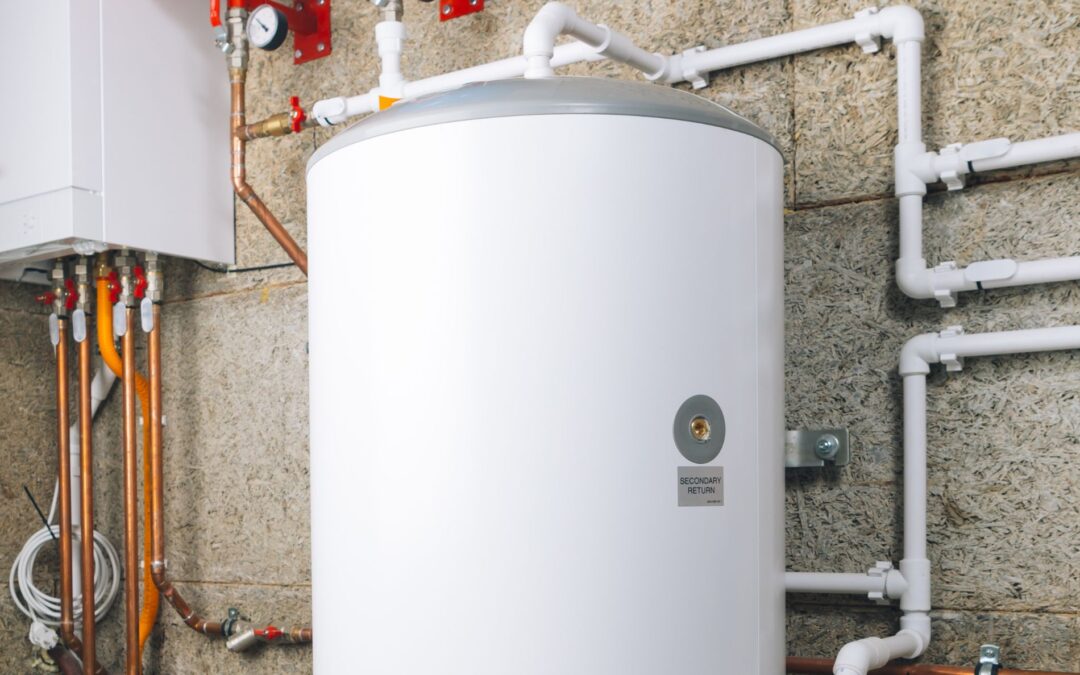If your boiler’s pressure has dropped without warning, it can be a frustrating experience, especially when you’re relying on it to keep your home warm and comfortable. When pressure falls too low, your heating system may stop working altogether or run inefficiently. It could also lead to long-term issues if not addressed quickly. Understanding what’s behind the sudden drop is the first step toward fixing the problem and avoiding a repeat situation.
In Aurora, homeowners often experience pressure-related boiler issues at the start of fall when systems are turned back on after being idle. This timing makes it even more important to be aware of early signs and what causes pressure loss. Whether it’s a small leak, a faulty component, or seasonal changes affecting your plumbing system, a drop in boiler pressure should never be ignored.
Common Reasons for Sudden Pressure Loss in Boilers
Boiler systems are pressurized, closed-loop systems that rely on stable internal pressure to circulate hot water efficiently. When pressure unexpectedly drops, several common problems might be involved. Here’s what to watch for:
1. Leaks and Drips
This is one of the most common causes of pressure drops. Any slow or hidden leak can cause pressure to fall gradually. Leaks can develop in the boiler unit, along connected pipes, or at valve points and joints. Even a small, unnoticed drip under the boiler can lead to performance issues over time.
2. Bleeding Radiators
When you bleed your radiators, trapped air is released to improve heating performance and efficiency. However, this process also reduces the amount of water in the system, which can lower the pressure. It is a common oversight to forget checking and refilling the system’s water level after bleeding radiators.
3. Faulty Pressure Relief Valve
The pressure relief valve is a safety mechanism that releases excess pressure from the system. If it malfunctions or becomes stuck partially open, it might release pressure even when not needed. This would gradually drop your boiler’s pressure without any visible leaks.
For example, an Aurora homeowner might overlook a subtle drip in the pipework under their boiler. Over several weeks, this minor leak allows enough water to escape to trigger the boiler’s low-pressure safety shutoff. This kind of slow deterioration illustrates why quick pressure loss is often rooted in long-term wear.
How Seasonal Changes in Aurora Can Impact Boiler Pressure
Aurora experiences noticeable shifts in temperature between summer and fall. As outdoor temperatures drop, homeowners start turning their heating systems back on after long summer breaks. These seasonal transitions can directly impact boiler pressure.
Pipes and joints in a heating system expand and contract with temperature shifts. When the system is off for extended periods, seals and joints are more likely to loosen. This makes small leaks more likely just as the demand for heating rises again. In addition, seals can dry out or shrink over the summer, causing leaks that are difficult to detect at first.
Colder incoming water temperatures in fall also mean your boiler must work harder to heat water to the desired temperature. This increases strain on various components. If any of those parts are aging or slightly compromised, the extra stress may cause the system to lose pressure more quickly.
Homeowners in Aurora should monitor their pressure gauge when restarting their heating at the beginning of fall. Noticing a pressure drop early can help address issues before they escalate into costly repairs or heating disruptions when temperatures drop further.
Importance of Regular Boiler Maintenance
Many causes of pressure drops link directly to skipped or delayed maintenance. Regular inspections and care can prevent small issues from growing unnoticed. Keeping up with a service schedule allows systems to remain efficient, safe, and dependable when needed most.
Our technicians often find that slow leaks are caused by worn or cracked seals, aging valves, or loose pipe joints. These issues develop gradually, often without noticeable warning. Routine maintenance allows for early detection and fixes before problems affect system performance.
Air in the system is another common cause, especially after bleeding radiators. Without resetting the pressure gauge, performance may drop noticeably. A quick pressure correction during maintenance can resolve this before it becomes a problem.
Regular boiler maintenance should include the following:
– Inspecting all visible pipes, joints, and valves for leaks or corrosion
– Ensuring the pressure relief valve is functioning properly
– Checking and, if needed, recharging the system’s expansion vessel
– Flushing the system to remove internal buildup or obstructions
– Reviewing pressure levels and restoring them to correct levels, if necessary
Skipping these steps could leave homeowners vulnerable to pressure drops just as heating demand increases. For Aurora homes, scheduling maintenance at the end of summer or early fall ensures your system is ready before the colder months.
When to Call Our Professionals for Help
Some pressure issues are simple to spot and fix, but others can go unnoticed until the system stops working altogether. Identifying the right time to call our professionals helps avoid unnecessary damage, higher repair costs, and extended downtime.
You should reach out to our technicians if you notice signs such as:
– The boiler keeps losing pressure even after refilling
– Damp spots near the base of the boiler or underneath connecting pipes
– Radiators remain cold despite being bled and refilled
– Unusual noises like banging or gurgling from the boiler
– Water stains or damage near the pressure relief outlet
These problems may not be isolated issues. In some cases, slow pressure loss might indicate wear in multiple parts or corrosion in less visible areas of the heating system. Our technicians have the experience and proper tools to perform accurate diagnostics and make lasting repairs.
Having your system checked early, especially in fall, can prevent emergency breakdowns later in the season. For homeowners in Aurora, early intervention supports consistent heating when it matters most.
Keeping Your Boiler System Reliable and Efficient in Aurora
Stable boiler pressure keeps your home evenly heated and your energy use consistent. A system running with the correct pressure responds faster, heats efficiently, and avoids the risk of unnecessary wear.
Letting pressure run low again and again forces the boiler to work harder than it needs to. Over time, this can shorten the system’s lifespan and make it more prone to expensive emergency repairs.
For homeowners in Aurora, the best way to maintain pressure stability is through regular service, keeping an eye on the pressure gauge, and listening for changes in performance. Addressing slow leaks, minimizing air trapped in the system, and replacing aging parts before they fail helps prevent sudden disruptions during peak heating months.
If your pressure drops often, or you’re unsure if the system is functioning at its best, a professional checkup can help catch what might be lurking beneath the surface. Consistent care helps extend the life of your system and improves peace of mind when heating matters most.
Reliable boiler maintenancein Aurora can help prevent costly breakdowns and keep your home heating system running smoothly when the weather turns cold. At Guaranteed Mechanical, our professionals inspect for worn seals, leaks, and low-pressure issues to help ensure steady performance and safety. For a quick estimate or to book a service visit, please contact us today.




Recent Comments